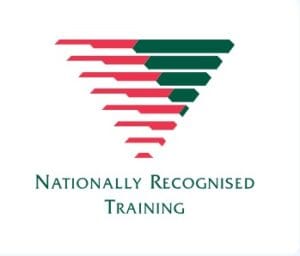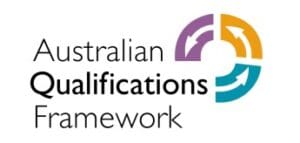Delivery Mode:
Online
AQF Level:
05
Course Duration:
52 Weeks
Fees:
AUD 3,000
Transform your career with Australia's premier pathway to ICT excellence. 52 weeks to your future.

This qualification reflects the role of individuals working in diverse information and communications technology (ICT) positions who possess specialised technical skills within a specific ICT function. These individuals perform moderately complex tasks, either independently, collaboratively as part of a team, or in leadership roles responsible for delivering key outcomes.
Their expertise may be applied across a wide range of industries, business functions, and departments, or in self-employment as contractors or consultants. Skill areas may include advanced networking, programming, web development, business analysis, cloud architecture and engineering, cyber security, database management, systems administration, systems analysis, game design and programming, and telecommunications network engineering.
There are no licensing, legislative, or certification requirements associated with this qualification at the time of publication, making it an accessible entry point into the dynamic world of ICT.
52 Weeks of comprehensive training
Online: Study anywhere, anytime
Graduates of the ICT50220 Diploma emerge career-ready, equipped with industry-recognised skills that open doors across the technology sector. This qualification positions you for immediate employment or career advancement in a variety of sought-after ICT roles.
Provide essential technical assistance and troubleshooting support to end users
Manage and maintain network infrastructure for optimal performance
Oversee critical IT systems and ensure seamless operations
Maintain and optimise database systems for organisations
Design and build dynamic websites and web applications
Coordinate technology initiatives and support business operations
Successful completion of Year 12 or equivalent, or demonstrated vocational experience in a supervisory or leadership role within a workplace environment (e.g., team leader, coordinator, or manager).
All candidates must participate in a course entry interview to determine the suitability of the course and identify individual student needs, ensuring the best possible learning outcomes.
All prospective students must undertake an LLND assessment prior to enrolment to ensure they possess the foundational skills necessary for success.
Learners must be 18 years of age or older at the time of enrolment. Students must demonstrate commitment to participating in Online delivery:Study anywhere, anytime and self-paced components) and actively engage in simulation-based assessments throughout the programme.

Students are provided with comprehensive assessment resources at the commencement of each unit, along with the corresponding learning materials. These resources clearly outline the range and types of assessment tasks to be completed for each ICT unit, ensuring transparency and clarity throughout your learning journey.
Assessments may include short written knowledge tests, detailed case studies, practical projects, research activities, technical reports, collaborative discussions, and the compilation of a professional portfolio of evidence demonstrating applied ICT skills in real-world contexts.
Written tests, case studies, and research activities to demonstrate theoretical understanding
Simulations, demonstrations, role plays, and presentations conducted in simulated ICT workplace environments
Compilation of evidence showcasing applied ICT skills and professional competencies
Additional time outside scheduled sessions for task completion and submission preparation
Real-World Learning: Practical assessments are conducted within a simulated ICT workplace environment, replicating real industry conditions to ensure graduates are truly job-ready. To achieve the best outcomes, students are expected to dedicate additional time outside scheduled sessions to complete practical and written assessment tasks and prepare for submissions.
Already have relevant experience or training? You may be eligible for Recognition for Prior Learning, which acknowledges your existing skills and knowledge.
Learners with relevant workplace experience, informal or formal training, or other life experience may apply for RPL. This pathway recognises the valuable skills you've already developed outside formal education settings.
Provide evidence of your skills and experience
Evidence assessed against unit requirements
Receive credit for demonstrated competencies
RPL applications are assessed against the unit of competency requirements, and sufficient evidence must be provided. An RPL assessment plan will be developed in consultation with each candidate to ensure a fair and thorough evaluation process.
Already completed relevant units at another registered training organisation? You may be eligible for credit transfer, fast-tracking your pathway to qualification.
Learners who have successfully completed identical units of competency as part of another nationally recognised qualification or Statement of Attainment will be granted credit transfer, avoiding unnecessary duplication of learning.
Previously completed units are recognised immediately upon verification
Provide certified copies of transcripts or statements of attainment issued by an RTO
Focus your time and effort on new learning areas
To be awarded this qualification, competency must be demonstrated in 20 units of competency, consisting of 6 core units and 14 elective units. This structure provides a solid foundation in essential ICT principles whilst allowing specialisation in areas that align with your career goals.
Originate and develop concepts
Lead and facilitate a team
Match ICT needs with the strategic direction of the organisation
Apply IP, ethics and privacy in ICT environments
Manage client problems
Promote workplace cyber security awareness and best practices
Choose from a diverse range of elective units to build specialised expertise in your preferred ICT domain:
The ICT50220 Diploma of Information Technology offers a flexible, comprehensive pathway to a rewarding career in Australia's dynamic technology sector. With no licensing, legislative, or certification requirements beyond successful completion, this qualification provides immediate recognition and value in the job market.
Our online delivery model means you can study from anywhere across Australia, balancing your education with existing work and personal commitments. Join thousands of successful ICT professionals who have transformed their careers through quality vocational education.
Comprehensive training programme
6 core + 14 elective units
Online: Study anywhere, anytime


Get an answer on courses, costs, careers as well as facilities, entry requirements or just about anything else relating to studying at IOIS.
We are here to help you!
